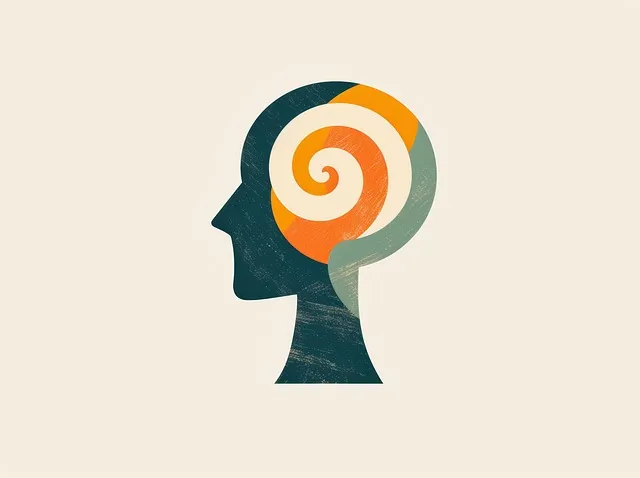The Boulder Kaiser Permanente Mental Health Center is revolutionizing mental healthcare with advanced assessment techniques, personalized care, and continuous staff training. They combine AI algorithms, compassionate communication workshops, and holistic practices to offer precise diagnoses and improved patient outcomes. This multifaceted approach positions the center as a leader in mental health diagnosis and treatment, setting new standards through innovative methods and empathetic care.
Mental illness diagnosis accuracy is a critical aspect of patient care, and ongoing efforts at the Boulder Kaiser Permanente Mental Health Center are making significant strides. This article explores three key strategies to enhance diagnostic precision. We delve into innovative assessment techniques at the center, highlighting their impact through case studies. Additionally, we examine the power of a multi-disciplinary approach, where professionals from diverse backgrounds collaborate seamlessly. Finally, continuous training and education programs are scrutinized for their role in improving diagnostic competence within the Boulder Kaiser Permanente mental health services.
- Enhancing Assessment Techniques at the Boulder Kaiser Permanente Mental Health Center
- – Discuss current assessment methods and their limitations.
- – Present innovative techniques being implemented to improve accuracy.
Enhancing Assessment Techniques at the Boulder Kaiser Permanente Mental Health Center

The Boulder Kaiser Permanente Mental Health Center has been at the forefront of enhancing assessment techniques to improve mental illness diagnosis accuracy. Through a combination of advanced tools and innovative practices, the center aims to provide more personalized care for each patient. One key strategy is integrating communication strategies that foster open dialogue between patients and healthcare professionals, ensuring every concern or symptom is thoroughly discussed. This approach not only improves diagnostic accuracy but also boosts patient confidence in sharing their mental wellness journey.
Additionally, the center has implemented training programs to equip staff with the latest research and best practices in mental health assessment. By prioritizing continuous learning, the Boulder Kaiser Permanente Mental Health Center ensures its team remains at the vanguard of enhancing diagnosis methods. This commitment reflects a broader goal to revolutionize mental healthcare through precise diagnoses and confidence-boosting strategies.
– Discuss current assessment methods and their limitations.

Mental health professionals at the Boulder Kaiser Permanente center have been working tirelessly to improve diagnosis accuracy in a landscape where current assessment methods are far from perfect. Traditional diagnostic tools, while valuable, often struggle to capture the nuanced complexities of mental illness, leading to misdiagnosis and inadequate treatment plans. These limitations stem from a variety of factors, including the subjective nature of symptoms reported by patients and the inherent challenge of differentiating between overlapping disorders.
To address these issues, the center has been actively integrating innovative approaches into their Risk Management Planning for Mental Health Professionals. This includes Mood Management and Stress Management Workshops designed to enhance clinical decision-making skills. By fostering a deeper understanding of mental health conditions, these workshops empower professionals to navigate the intricate web of symptoms more effectively, ultimately improving diagnosis accuracy and patient outcomes.
– Present innovative techniques being implemented to improve accuracy.

At the Boulder Kaiser Permanente mental health center, innovative techniques are being implemented to enhance diagnosis accuracy. One such approach is the integration of advanced assessment tools that leverage artificial intelligence (AI) and machine learning algorithms. These cutting-edge technologies analyze vast amounts of data from patient histories, symptoms, and behavioral patterns to provide more precise and nuanced insights, reducing human bias and improving diagnostic reliability.
Furthermore, the center promotes coping skills development and compassion cultivation practices among mental health professionals. Through specialized training programs, these practitioners learn effective communication strategies, mindfulness techniques, and emotional regulation methods that not only enhance their clinical decision-making but also foster deeper connections with patients. This holistic approach, combined with robust risk management planning, ensures a comprehensive and compassionate care environment, ultimately improving the accuracy of mental illness diagnoses.
The Boulder Kaiser Permanente mental health center’s commitment to enhancing assessment techniques demonstrates a crucial step towards improving mental illness diagnosis accuracy. By adopting innovative methods that go beyond traditional practices, the center aims to navigate the complex landscape of mental health evaluation. These efforts, focused on both patient care and clinical practice, hold the potential to revolutionize how mental health professionals diagnose and treat patients at the Boulder Kaiser Permanente Mental Health Center and similar facilities worldwide.






